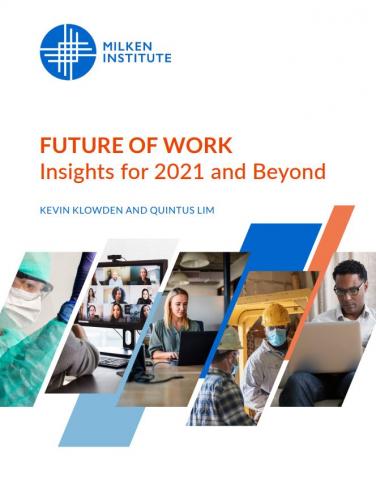The aftermath of the 2008-09 financial crisis spotlighted unequal access to jobs and opportunities in the US. After the Occupy Wall Street protests, many industries and agencies re-examined policy areas for their impacts on inequality (including even the Federal Reserve1). Many policies today, including universal basic income,2 free education and health care, reduced labor inflows, and controlled trade and investments, are partly in response to unequal access to opportunities and uncertainties about the future of work.
Meanwhile, artificial intelligence (AI) has exceeded human capability3 in such areas as image classification, language translation, and speech recognition. For example, DeepMind’s AlphaFold has generated breakthrough solutions in protein folding (a 50-year-old problem),4 while OpenAI’s GPT-3 can write HTML code to generate websites based only on human descriptions of what the site would look like.5 AI enables autonomous vehicles and navigational systems that allow ships to cross the Atlantic and planes to land without radio signals. Entire factories and ports are already fully automated, as are an increasing suite of services. The benefits for industries are deep and far-reaching.
FUTURE OF WORK Insights for 2021 and Beyond
Author(s): Kevin Klowden and Quintus Lim
Publisher: Milken Institute
Publication Date: 2021

